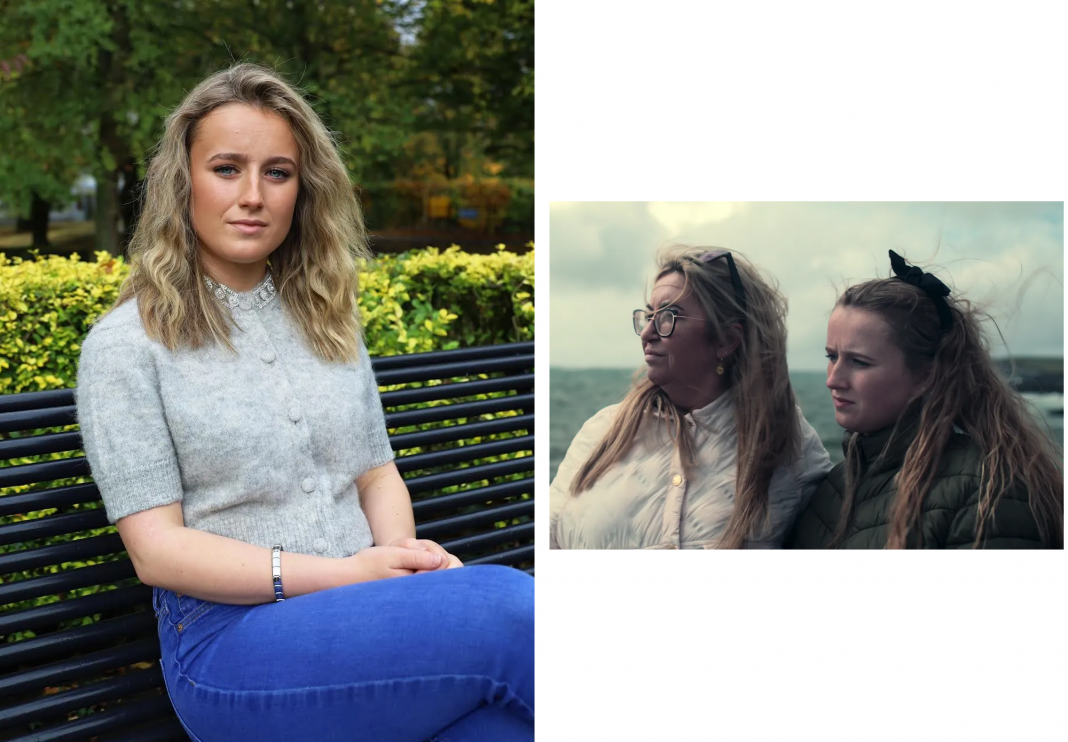Writing her way Back: How Sarah Corbett Lynch found strength through storytelling
At just 18 years old, Sarah Corbett Lynch is emerging as a powerful voice for young survivors of trauma, grief, and coercive control. Following the release of the Netflix documentary A Deadly American Marriage, which explores the 2015 killing of her father Jason Corbett, Sarah is stepping out from the shadows of silence with a memoir of her own, A Time for Truth. In it, she unpacks not only the events that shattered her family but also the healing journey that followed. Now, with a message shaped by loss and resilience, Sarah is determined to help others who feel voiceless—and remind the world that children, too, carry truths worth hearing.
From tragedy to testimony
Sarah was just eight years old when her life was upended by a brutal act of violence. Her father, Jason Corbett, was killed by his second wife, Molly Martens, and her father, Tom Martens, in their North Carolina home. What followed was a convoluted legal battle that exposed deep fractures in the story initially told by the Martenses—that Jason had been abusive and they had acted in self-defense.
Although the Martenses were convicted of second-degree murder in 2017, their convictions were later overturned. In 2023, they pleaded to lesser charges and were released after serving less than a year. “That was a really hard pill to swallow,” Sarah says. “But I learned you can’t get upset about what you can’t control.”
Instead, she focused on what she could control: her own narrative. With her brother Jack and her guardians, aunt Tracey and uncle David, she participated in the Netflix documentary to set the record straight. And more importantly, she wrote her memoir to reclaim her truth—outside the courtroom and beyond the headlines.

A time for truth: More than a memoir
Writing A Time for Truth became more than just a literary project for Sarah—it became a lifeline. “I cried a lot less,” she admits of the writing process. “I got to take all the worst things that happened to me, funnel them into one place, and finally forgive the little girl who said things she was forced to say.”
The book reveals the hidden abuse she and her brother endured while living with Molly Martens: from coercive manipulation to emotional and physical mistreatment. Sarah says she was coached to lie about her father’s behavior and lived under psychological pressure from a young age. “When I was six, Molly started telling me that my dad killed my birth mom. She taught me to vomit, to shoplift. I thought that was normal.”
What makes A Time for Truth so striking is its directness—not only in confronting trauma but also in trying to guide others through it. “Other kids or women or men who’ve been through something similar, I want them to know they’re not alone,” she says.

Healing in and out of the water
Despite her painful history, Sarah has found joy in unexpected places. Swimming, once a source of anxiety tied to Molly’s abusive pressure, has become a form of therapy. “She had me on diets, in the gym at six. I hated swimming,” Sarah recalls. But after returning to Ireland and reengaging with the sport on her own terms, she began to rediscover its peace.
Now a swim instructor and certified diver, Sarah sees the water as a space of freedom. “When I dive, I can’t bring my phone, or work, or drama—just myself and the fish,” she says with a smile. She hopes to pursue diving full-time after college.
In a touching full-circle moment, Sarah recently gave a copy of Noodle Loses Dad—a children’s book she wrote at 13—to a foster child she teaches. Watching him find comfort in her words reminded her why she speaks out. “That’s what I’m all about. Helping kids see a light at the end of the tunnel.”
Making her voice heard
Sarah is keenly aware of the attention the documentary has drawn—and the scrutiny that comes with it. But she’s also seen an outpouring of empathy online. “People have been sensitive. Some even remind others that Jack and I are real people on TikTok, and to be mindful.”
What frustrates her most are misconceptions about the early statements she and Jack made supporting Molly’s version of events. “People ask, ‘How could she coach you in three days?’ But she’d been in my ear since I was four. When someone you love is telling you to lie about someone else you love, you start calling that lie the truth.”
Sarah is particularly passionate about raising awareness of coercive control—something she didn’t even have a name for until years later in therapy. “You don’t always know you’re in it until it’s over, and by then the damage is done.”
A legacy of love
While much of Sarah’s story is rooted in tragedy, what drives her is love—especially for her father. In A Time for Truth, she shares vivid memories of their life together, including one cherished walk through the Irish countryside that ended in a rainstorm and a lucky shelter in a cave. Years later, Sarah stumbled upon the same cave after returning to Ireland, now a poignant reminder of his presence. “He was everything to me,” she says. “Being in that cave again made me feel like I was exactly where I was supposed to be.”
Today, with the support of her family and a growing community of readers and survivors, Sarah is building a future shaped not by what happened to her, but by what she chooses to do with it.
Her message to survivors: You have a voice
Sarah knows she’s not alone in her experiences, and she wants other young people navigating trauma to know they aren’t either. “It’s really hard, because no one believes you,” she says. “But you have to know your truth and be okay with that. You do have a voice.” Despite being discouraged from testifying or even writing her book, Sarah trusted herself. “I was there. I knew the truth. And now people are hearing it in my voice, especially through the audiobook.”
As she continues to speak out, one thing is clear: Sarah Corbett Lynch won’t stop using her voice—not for herself, and not for the countless others still finding theirs.



